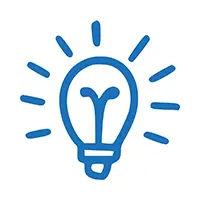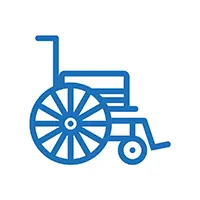Published 03 January 2019
Tony Howe, who has muscular dystrophy, has spent the past 26 years advocating for improved accessibility and living conditions for people with disabilities. In this podcast for In My Own Words, Tony shares his reflections on that journey, and the work we still have to do to create a truly inclusive society.
Listen to the interview or read the transcript below.
Presenter:
Tony Howe is an information consultant for Independent Living Service in Auckland, where he’s worked for the past 26 years, after starting as a volunteer at age 23.
He has muscular dystrophy, a progressive disease that’s gradually reduced his mobility as he’s gotten older.
But he’s remained a fierce advocate for accessibility and equity for people with disabilities. Part of his work involves assessing buildings for accessibility and giving advice about how they can be improved.
I met with Tony recently at his office at Independent Living Service – he told me that early in his life he learned to be self-sufficient, but that led to him becoming somewhat isolated.
He says his work at ILS helped him see the positive impact he could have on others by being open about his background, and his struggles.
Tony:
It was a group of people that really had the community at heart. They didn’t judge.
They were supportive. And before I knew it, my volunteering in a tiny little capacity led to them encouraging me to share more of myself, especially with the people that came through the doors.
And it was a realisation to me that actually, hiding away was not good. That I could actually be more by being visible. That I could contribute more, not to just my own self and my own growth, but possibly to others around me, if I got involved and I shared myself and I was open to learning from others.
And it’s truly been a growth experience. The people I’ve met here have been fabulous. It’s a heck of a way of learning that, by crikey, get over yourself. There’s someone out there struggling more than you.
I’ve learnt a lot and am continuing to learn, and the best thing that I can now offer is from my experience, the time that I have here in my job, to give back.
Presenter:
Muscular dystrophy is generally progressive, so tell me about how it has developed for you?
Tony:
So, at the age of two or three I was tripping and stumbling where a lot of kids were up and running, so that was the first indicator to my parents, especially with our blood line, they went and got me checked and sure enough, so by the age of sort of six, seven, children were forever letting me know, oh what’s wrong with you? You’re different. You’re not normal.
I since learned that the word normal means to be average, so essentially, they were saying that I’m not average, which I’m slowly in my early 50s coming to see that that’s a good thing. Diversity. We all need diversity in this world.
My late teens, basically walking was non-existent outside of the house. I could only do small distances without falling. Early 20s, into a manual chair, that was an easier transition than I thought, I don’t remember the day I stopped walking or started propelling in a wheelchair. I just remember feeling relieved that I no longer fell, that I felt less embarrassed about people because my movements were probably less different than everyone else because I was propelling in a wheelchair.
Then eventually in my late to mid-30s ending up in an electric wheelchair, which was really after I suppose having an injury to my shoulders which meant that self-propelling wasn’t a go anymore, and you gotta know when the time’s right, just like I knew when driving a car, giving that up the time was right.
The day I got home from work on the last day of work about six years ago, and I realised that I could no longer hold my car with the brake, the foot brake, I knew right then and there that it was time, ‘cause if you don’t listen to that and you kill someone, it’s too damn late, so I’ve not driven for about six years now.
Presenter:
You were telling me earlier about how people are living longer now – do you mean people with muscular dystrophy are living longer, or everybody is?
Tony:
To be honest, both. Especially when you think about our society, society is less disabling now, or less, people with impairment are more visible. The thought around having a full and normal life is more than just a pipedream, but it’s actually the ethos that’s coming down through from government levels down.
So there’s encouragement to sort of grow, to be the best you can be, to live as long as you can, to have a full and meaningful life, especially as employment options start to come up, I believe that you’ll see more and more people out of their homes, more active, more involved, and with that I believe comes life, energy, purpose, all these things that contribute to us in our wellness sense. Base that around the fact that humans are naturally living longer as well.
I think the more we can do for our society is to adapt and be ready for the diverse need for a more involved community the better we will be.
Presenter:
So, you’re saying that people’s emotional, mental, spiritual wellbeing is as important as being physically well.
Tony:
Oh, most definitely.
Pneumonia is a big killer of people with muscular dystrophy. It takes energy, it takes spirit sometimes to beat that, as well as drugs and medication and hospital visits and carer support. To be able to bounce back from these things, to sort of be able to grow and to thrive takes purpose.
It all takes hope and a sense of something, and value is a sense of something. I think that not enough importance is placed on to feel valued, to feel needed, and as I say purposeful. To me, it all builds to who we are the energy that we have, and our ability to fight and kick on when times get tough.
Presenter:
What changes have you seen to how the government supports people with disabilities?
Tony:
I was lucky enough to be mainstreamed. The expectation now is that everyone is mainstreamed. That might only be with education but without education where are we? The society that we live in now, when I was growing up it was a medical model. The philosophy was around you’re broken in some way. Surely, we can fix you, if we can’t fix you there’s not much we can do, just enjoy what you can, do the best that you can and good luck.
But now it’s sort of social model and actually it’s moved beyond that into more, I don’t know if it’s got a label but it’s more around this sort of diverse approach that we are all different, that we are all important, that we all have a place, and that there should be purpose for us all.
To me that’s the biggest development I believe because it’s coming from government level and it’s filtering all its way down in the way that many of us end up in the benefits system, whereas before it was all about getting on an invalid’s benefit, or in those days you were called invalid. It’s more now around the support structures and sort of keeping you buoyant and afloat and moving forward and towards hopefully employment, hopefully relationships, hopefully community lifestyle and living, hopefully engaging with services not just for helping me but to be involved and to I suppose help those grow as well for others that come after us, because I think it’s important to remember that while we’re here now, the trailblazers that have come before us, I include my own parents, my own grandfather, trailblazers, it’s what we do now that are going to benefit and assist those that follow us, whether they have an impairment or not, the communities need our input.
Presenter:
What work do we still need to do to make things equal for people with disabilities?
Tony:
Well, certainly the built environment, the amount of buildings in this country that are inaccessible, the amount of houses that are still built that are inaccessible. The educational system which is about, I believe, still about number crunching, it’s still looking for the highest percentage of achievement rather than lifting people up and beyond what they were born into, or what they have been told they will never escape from.
Communities reaching out to each other, engaging with neighbours, engaging with people of difference, and I’m talking ethnicity as well as impairment diversity. Because without each other, we’re all alone, and if we’re all alone, we might as well just live behind walls and if you live behind walls there is no such thing as a community. That’s what we do when we put people in institutions, whether it be prison or some kind of care centre, communities are not institutions, so we need to live and grow our communities so that our diversity is normal, it’s not something that is seen as strange.
Presenter:
So what’s your vision for how we can create a truly inclusive society?
Tony:
We have a chance as a collective society to really truly grow every individual in this country and allow them to be the best they can be, regardless of their circumstance they were born into, or what happens throughout their life, that they acquire that might make things difficult. I just want New Zealanders as a whole to really reflect that and I suppose, engage with people with impairment, believe in people with impairment, and to I suppose not be afraid to even just come up and say hi. We all deserve to smile and be happy.














